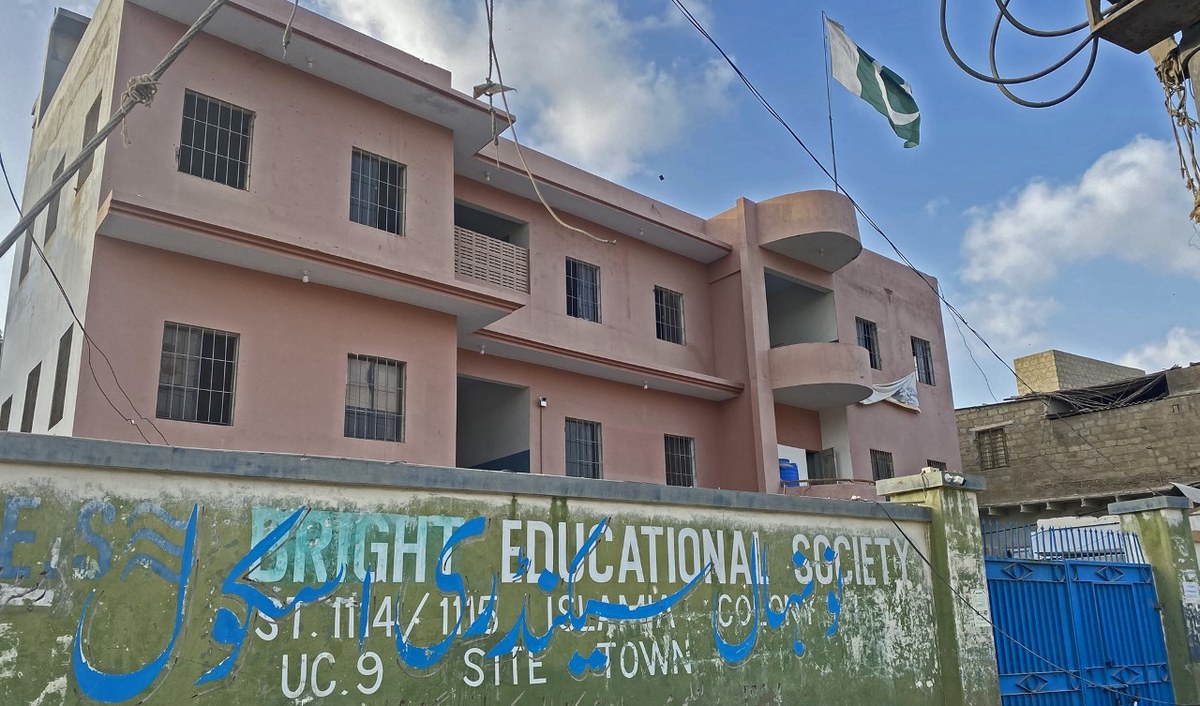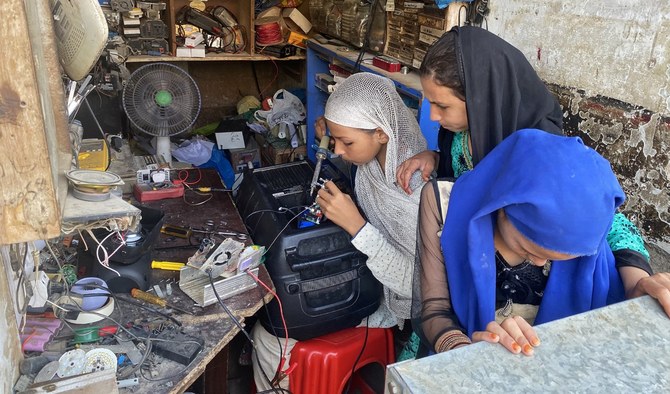KARACHI: At a small shop in Pakistan’s southern megapolis of Karachi, two young girls are bent over a work station, busy repairing wires and battery chargers.
Despite all odds, Naseeb Jamal, an electrician for 20 years, has taught six out of his eight daughters his craft to help them become self-reliant in the future.
“When I had four daughters, it came to my mind [that] why shouldn’t I give them education?” Jamal, who moved to Karachi from the Tor Ghar area in the northwestern Khyber Pakhtunkhwa province, told Arab News. “But I couldn’t give them education due to shortage of financial resources. Then I thought that why shouldn’t I give them skills?”
While two of Jamal’s younger daughters are still learning, four are already adept electricians and their father’s pride. “My daughters are making a name for themselves in society, for women in Pakistan,” he said.
Jamal lives with his family near the spot where gunmen in 2013 killed Abdul Waheed Khan, a social worker who ran a co-educational school in Qasba colony.

A view of the Naunehal Secondary School in Karachi's Qasba colony, which was run by Abdul Waheed Khan, a social
worker who was killed by militants in 2013. Photo taken on September 25, 2020. (AN photo)
Khan had dreamt of bringing modern education to the slums of Karachi whose many inhabitants, like Jamal, have migrated there from northern Pakistan to escape militant violence and look for better job opportunities.
Those who challenge social taboos face opposition and receive little support, Jamal said: “Sir Waheed Khan sacrificed his life for the sake of educating our children.”
His own attempts to empower his daughters have been opposed by conservative neighbors and family members.
“When you give your child a skill or education, some people in the family will oppose it. But you don’t need to give heed to them,” he said.
In his capacity as a father, Jamal wants to at least make his daughters stand on their own feet, he said. Two of them are already married and happy, he said, because they had learned to be empowered: “I will oversee the future of my children ... I will give them skills and make them useful for the country and for themselves. It will create confidence in them and will make them stronger.”
The girls, who attended regular school before the coronavirus pandemic shut down campuses across Pakistan, also help Jamal run his business.

Javeriah Jamal repairs a sound speaker, accompanied by her sisters, at their father Naseeb Jamal’s shop in Qasba colony, Karachi, Pakistan, on
September 25, 2020. (AN photo)
“I do solar lamp installations and when I am out of home or out of city, I don’t have to worry about the shop,” he said. “After coming back from school, they open the shop and even if I am away for three days, they take care of the shop and home.”
One of Jamal’s younger daughters, 10-year-old Javeriah, said she found the work “a little difficult” at first but had gotten the hang of it.
“I have learnt it from my father,” she said with a smile as she handed a repaired battery charger to a customer. “I fix lights, I fix speakers and I can fix the charger of battery.”
Jamal believes that girls should not be kept confined to their homes: “If you want them [girls] to learn to have trust in themselves, you will have to bring them out [of the homes]. And you will have to trust them.”












